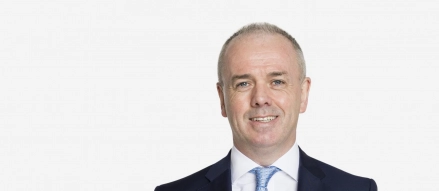
Accountancy & business advisory survey
The condition of the SME sector varies by industry. Those businesses reliant on hospitality and tourism have been badly impacted by the pandemic, albeit the significant government supports directed at such companies have helped ease the pandemic’s impact. Staffing is now a significant challenge for these businesses. Other businesses continued unaffected, and many used the pandemic as an opportunity to innovate or implement new business models that have brought efficiencies and a competitive edge to their companies.
There is little doubt that many businesses used the Revenue Warehousing Scheme as the lender of last resort, and it is likely an amount of this warehoused debt will never be repaid. It will be interesting to see the extent to which the new SCARP restructuring tool will be availed of by SMEs and what the attitude of Revenue will be to the debt compromise that will inevitably ensue in such cases.
Whilst the economy is performing well and continuing to grow, there are several headwinds facing the economy, including the ongoing fallout from Brexit, supply chain and inflationary pressures and uncertainty from the current conflict in Ukraine. One would expect that interest rates will increase over the next 12 months adding further pressure to businesses and households.
Activity
The firm has enjoyed double-digit growth over the past year. We see strong demand for our services right across the business, with areas such as financial services, regulatory consulting and corporate finance particularly busy. The past year has also seen market demand increase for emerging service lines such as sustainability advisory as ESG becomes an ever-increasing priority for many boards.
Taxation
Ireland’s marginal personal tax rates are amongst the highest in Europe, thereby limiting the scope to raise additional revenues from this area. It is also expected that our corporation tax take will be negatively impacted by global tax reform. As such, spending decisions will need to come more into focus, as simply increasing our national debt will become much less attractive as we move into a period of rising interest rates. Sustaining and further growing the economy and underlying employment base will be critical to effective budgetary policy in the future.
Technology
Technology has shifted our role as advisors away from purely technical accounting matters and more towards broader client issues such as protecting and growing their business. Data analytics, blockchain, robotic process automation, cloud, artificial intelligence, and other technologies are already driving significant changes in the accounting profession, such as how we deliver our services and the depth of analysis we can perform.
Our Group Head of Innovation actively seeks technology-based ideas from around the international firm whilst our Head of Artificial Intelligence in Ireland focuses on examining our processes and better supporting our clients.
Purpose
Many organisations have been striving to build purpose into what they do for a long time, but usually, it’s talked about as an add-on and not necessarily a core part of strategy. However, a growing emphasis and body of thought suggest purpose can be very powerful when moved to the centre of business thinking. When leaders, staff, customers and other stakeholders connect with purpose, it can provide a real impetus for growth.
More and more companies are spending time integrating purpose with strategy. We have done so in Mazars by defining our purpose as “aspiring to build the economic foundations of a fair and prosperous world” that now drives so many of the strategic decisions we make. I believe it is a reality already, and as a firm, we advise clients through our business advisory and consulting teams on integrating purpose with the strategy on an ongoing basis.
This article first appeared in Business Plus magazine in April 2022.





